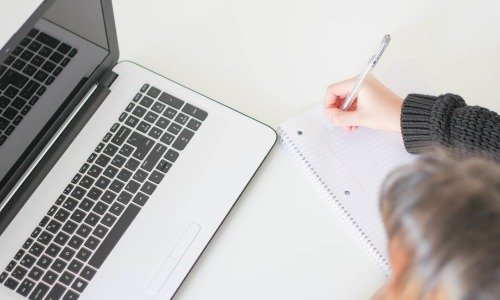If payday rolls around and you haven’t made a budget but you have filled your Amazon cart, then we need to talk. Making a budget is intimidating, so I am breaking it down into a 10-minute payday checklist. If you complete this list every time you get paid, then you’ll get your money right so you can press purchase instead of ghost shopping.
(Initial set up may take more than 10 minutes the first time)
[ ] Pay your bills first
You’ve got to take care of you and your own. This means bills are paid first. Start with the essentials:
- Rent/mortgage
- Utilities
- Transportation
- Healthcare/health
- Food
After the essentials, pay your other bills like Netflix, internet, subscriptions and minimum debt payments.
Even if these bills aren’t due yet, you can pay them early or put the money into a different account. You want to eliminate the possibility of forgetting to pay a bill or not having the money for it.
I opened a second checking account with my credit union for this purpose. When payday hits, I immediately move the money I need to pay bills into “Bills Checking”. This is now an automated process and I know I have set aside the money to take care of life essentials. Since we combined finances, we are using the same system.
[ ] Tackle a debt payment (or two)
If you have debt of any kind, make one extra payment on payday. Focus on the high-interest debt first like credit card debt. This is called the debt avalanche method where you pay off the highest interest debt first and work your way down from there.
Making extra debt payments may be the most painful part of your 10-minute payday checklist. As someone who is paying off thousands in student loan debt, I know how you feel. After I make the extra payment and I see the balance move down just a teensy bit, I feel proud of myself, and you should too.
(If you’re debt-free- then you’ll increase the money you move into savings or investments)
[ ] Move money into savings
Saving for the future is one of the best money habits you can build. Why not make it happen the same day you get paid? Start by moving money into an emergency fund. Keep this emergency fund money somewhere you can’t get to it easily. We keep ours in a high-yield savings account with Synchrony.
If you’re not sure how much to save, it’s recommended you save about 20% of your paycheck. If you’re paying off debt, this might not be possible. When we were building up an emergency fund, we used to save the same amount we paid off in the extra debt payment. For example if we paid an extra $300 to my student loans, then we moved $300 to emergency savings. Your emergency savings should cover one to three months of expenses. But some experts recommend even more.
Over a few paydays, you’ll build up your emergency savings to a place you’re comfortable with. Then, consider opening new accounts to save for future expenses like travel or events. I currently have 5 savings accounts and move money into each on payday. HisFI has 4 savings accounts.
[ ] Invest
I have so many friends who skip this part of their money checklist. That’s because investing seems scary and reserved for those who already have their financial life in perfect order. That’s not true. If you have a 401k match at work, then put in enough to get that match. It’s an easy first step and probably just an e-mail and signature away.
No 401k? Then open your own retirement account like a traditional IRA or RothIRA with Vanguard or Fidelity. Make sure you choose an investment so the money can grow. I recommend a Total Stock Market Index fund like VTSAX. Move money in every payday, no matter what. Start with $20 and then increase over time.
Once you’ve paid off debt and saved for an emergency, then try maxing out your 401k or opening a new RothIRA. If investing seems like too much to handle, then I recommend you follow Amanda from Dumpster Dog blog. She has an amazing course called Invested Development that will make you feel like an investment nerd once you’re done.
[ ] Pull out your fun money in cash
The money you plan to spend at Sephora or on cocktails should be pulled out in cash. If you struggle with impulse purchases, cash can be a great way to curb this habit and not overspend. There is some will power in this step and it requires you only spend what you’ve pulled out in cash.
Do this on payday after you’ve made all your money moves and then treat yourself!
[ ] Check your credit score
The last thing you want is your payday money going into the icky hands of an internet thief. Payday is the perfect time to check your credit score. If you notice it has dropped a few points, then check the status of your accounts.
You can check your credit score using CreditKarma or Mint for free. If you’re working on raising your credit score, the on-time payments and extra debt payments should start reflecting in your score.
If you’re curious, I recently wrote 5 tips from the fraud prevention pros for protecting your money.
10-minutes every payday will keep your financial health in check
I’ll admit, when you’re first going through this checklist it might take your more than 10 minutes. Especially if you need to open any new accounts. After everything is set up, then the process will be fast and easy. Just a few clicks and you’re on your way to better financial health.



2 comments
Great post! Doing all these things on payday will set you up for financial success!
Thank you!